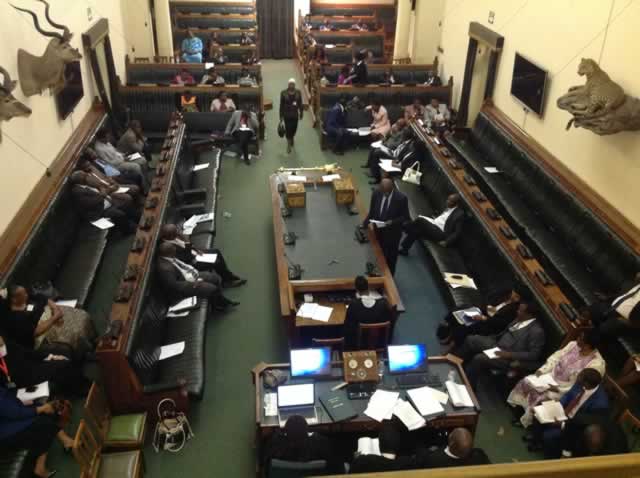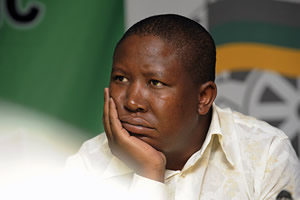Govt must do more in fight against graft

Lloyd Gumbo Mr Speaker Sir
Zimbabweans should be forgiven for thinking that corruption is a criminal offence only applicable to small fish, while the big ones swim until there is no more to loot. If there is one thing that does not strike Zimbabweans anymore, it is when public officials are accused of corruption or are said to have been involved in corrupt activities. This is so because a lot has been said and written about corruption in Government ministries and State entities, yet nothing of note has been done to bring the culprits to book.
While authorities have expressed themselves on how they detest the vice, so far it has remained one of the usual rhetoric where trumpets are blown but to no avail.
Mr Speaker Sir, corruption tends to blossom where it is conveniently ignored, but shrinks where action is taken against the culprits.
The Chinese have said it that you either eradicate corruption or you perish.
It is as simple as that but the question is; does Zimbabwe want to perish because so far there is no sign of the political will to eradicate corruption.
It would be naïve for anyone to suggest that there is a country that is corruption-free, but it is the levels and subsequent actions by authorities that matter.
When news emerged that Minister of State for Mashonaland Central Provincial Affairs Martin Dinha had been arraigned before the courts on extortion charges, it is possible that the majority of Zimbabweans hoped against hope that he would face the music.
Never mind the validity of the allegations or the case itself because that is for the courts to determine, but generally the majority of people could have received it as one of those, where a lot is said but no further action beyond that is taken.
The Auditor-General’s Office has over the years done a lot within its mandate to expose endemic corruption, mismanagement and poor corporate governance in ministries, parastatals and State enterprises.
But Mr Speaker Sir, what has become of the reports besides just piling dust in Government offices, including at Parliament?
Boards and management at State organisations have stripped these organisations of their assets until there was nothing more to loot but what has happened to those officials?
If anything, the same culprits have been rotated in parastatals as if to reward them for looting.
Finance Minister Patrick Chinamasa made an interesting comment recently, when he said Government was not doing enough to fight the scourge of corruption.
He cited the Auditor-General’s reports that have not served any purpose except to gather dust in the corridors of power including Parliament.
“The Auditor-General has been making reports to Parliament and there is a lot of interest generated from those reports, but the greater interest is ‘what is Government doing about it? There have been anomalies and what is Government doing about it to seek redress or to prevent these anomalies from happening in the future?
“Right now I’m thinking, we should set up a unit in the Ministry of Finance and Economic Development to follow up on those reports so that as Government we are seen to be serious when anomalies are brought to our attention,” said Minister Chinamasa.
Well said, but wrong prescription!
From his submission, it would seem, he felt that we don’t have adequate ammunition to curb corruption, mismanagement and poor corporate governance.
But Mr Speaker Sir, we do not need another unit to duplicate the roles carried out by already existing State institutions.
Our problem is not lack of institutions to curb corruption by bringing culprits to book.
The greatest deficiency we suffer is unfettered political will and sheer incompetency on the part of those responsible for ensuring that corruption is nipped in the bud.
We have adequate mechanisms and arms by any standard in place to carry out this mandate.
We have the Zimbabwe Anti-Corruption Commission, the Zimbabwe Republic Police and the Prosecutor-General’s office — all arms that are mandated by the Constitution to eradicate this scourge, but what have they done so far except raising their tails on rodents?
They find it appropriate to pursue and prosecute people who steal bolts and nuts, while turning a blind eye on those who steal earth-moving equipment.
It is so glaring with no shred of doubt that there are people who looted and maybe continue to loot the country’s resources with impunity.
But should they continue with immunity just for political expediency?
Mr Speaker Sir, which high profile case has the ZACC raised or pursued since its launch?
Does the silence or lack of high profile cases mean that there is no high-level corruption in Zimbabwe?
Does it mean the only corruption existent in Zimbabwe is at micro level?
Your guess is as good as mine.
But why are our institutions playing accomplice in these shenanigans?
If they cannot stand the heat that comes with these responsibilities, why can’t they just say so?
Government can then cut expenditure on these institutions that have failed to justify their existence.
But should the country give up on fighting corruption at senior levels?
No!
If Zimbabwe is to develop, corruption has to be nipped in the bud, no matter how painful or inconvenient the exercise may be. But what are the things that need to be addressed if corruption is to be eradicated in Zimbabwe? In my opinion, the ruling party has to be seen to be fighting corruption by letting culprits face the music regardless of the position they hold in society.
That way, Zimbabweans will see that corruption is a criminal offence, not a civil issue as is portrayed at the moment.
Also Government departments that were put in place to fight the scourge of corruption must carry out their duties without fear or favour, but must, as a matter of principle, avoid being used to score personal scores by politicians or any influential people in society.
Mr Speaker Sir, Parliament must not underestimate its power by folding their arms. They must demand action from all arms of Government but be careful not to violate the principle of separation of powers. As they say in Zanu-PF, “iwe neni tinebasa”. That must be the spirit in fighting corruption if the country is to rid itself of this vice.
Feedback:[email protected]








Comments